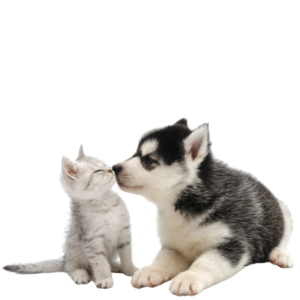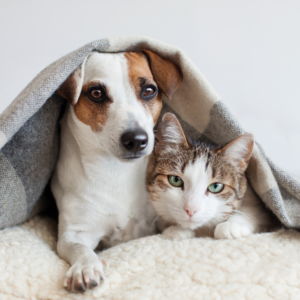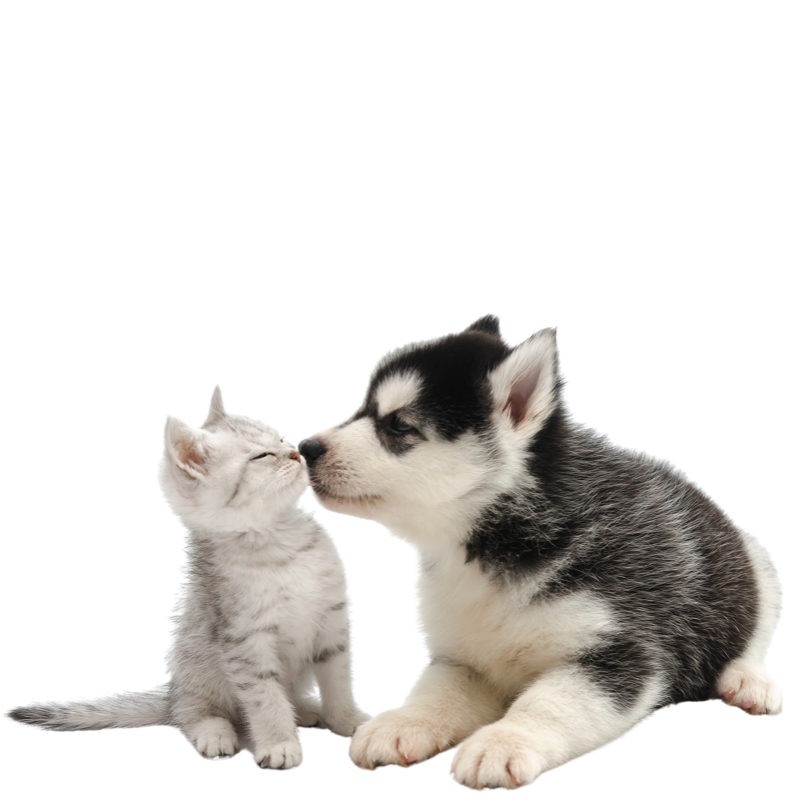New Dog or Puppy Parent? Congratulations!
Here’s What You’ll Need…
So you have a new furry friend, congratulations! Puppies and dogs bring so much joy to us, and with the right love and care, we can help them live long, healthy, happy lives.
Before you bring your new friend home (or very shortly after!) we have some recommendations on what you will need to make the transition go as smoothly as it can for everyone.
What You’ll Need
It’s best not to leave it to the last minute to get all the supplies you’ll need to make your dog feel at home – you don’t want to bring them into the house and suddenly realize you forgot to buy something important!
Getting these supplies ahead of time will make sure that your first day with your new pup is full of excitement, not stress.
Here are the essentials you’ll need:
- Crate: Get a crate so your new dog will have a quiet, safe place to lie down and be left alone. These are important for when your dog is alone during the day and at night. If you have a puppy, make sure you get a crate that will be big enough to accommodate their growth over the next few months. The crate represents the crib and playpen for a puppy.
- Food: Dry food is ideal for your dog. Talk to one of our nutritional specialists; the foods we provide at Clarkson Village Animal Hospital are made to provide optimal growth and to help prevent common medical problems. One food we recommend is Rayne Growth Sensitive GI food.
- Food Bowl: Choose a food bowl that is an appropriate size for how much food you will give your dog at each serving. You won’t want to get a bowl that is too big, because you will be tempted to over-feed your new pet!
- Water Bowl: Get a nice big water bowl for your dog – water is extremely important for your pet’s health. Give them fresh water in a clean bowl every day.
- Toys: You’ll definitely want to get some toys for your new dog. Dogs love to play, especially puppies! Play helps you bond with your dog, and provides exercise and enrichment at the same time. Every dog will have a preference for certain types of toys, so experiment with different options to see what your pet likes – we’ve found that Kong heavy rubber toys are one of the best (like the Kong Wubba)!
- Food-Dispensing Toys: These are great products for mental stimulation and activity, providing environmental and behavioural enrichment for your new pup! We recommend The Kong Classic Biscuit Ball Toy.
- Deterrents: You should never use violence or yelling to deter your dog from doing something it shouldn’t be. There are lots of vet-approved deterrent solutions out there, like the Bitter Apple Spray.
- Collar and Leash: Different leash and collar combinations are appropriate for different breeds of dog. Make sure the collar isn’t too tight. You should be able to insert 1 finger between the collar and your dog’s neck for small dogs, 2 for medium dogs, and 3 for big dogs. We recommend purchasing an Adaptil collar or Gentle Leader harness for the first few weeks, designed to help keep your new dog calm while they get used to their new life. Some dogs – bigger, with a lot of energy – may need specialized collars/leashes to help you maintain control while you walk them.
- Coats and Boots: In the winter, our furry friends need protection from the ice, snow, wind, and salt. We recommend Pawz Dog Boots and Buster Active Dog Coats to keep your dog warm and happy.
- Good Walking Shoes: Daily long controlled leash walks are one of the most effective and fun tools for a calm, well-mannered dog!
You can get all of the products you need on our webstore!
House Training – Job One!
Most adult dogs will already be house trained when you arrive home with them.
However, if you’ve just brought a brand new puppy home, you’re going to need to spend some time doing house training!
House training is crucial in the early stages of a pup’s life. We recommend training your dog to go outside from the beginning rather than training on paper indoors with the intention of training outdoors later on.
Get your puppy used to a schedule, as this will help form a habit that they are comfortable with. For example, take them out the same time every morning, when you get home from work, and in the evening.
When they successfully go outside, reward them with praise or a treat. If they have an accident, do not yell or punish them – simply move them outside to teach them where the toilet is.
Train your puppy that the toilet is outdoors, never indoors, and you will have fewer potential problems down the road.
Our Puppy Training Manual has a lot of detailed information regarding house training. Ask us for it at the clinic!
Obedience Lessons
If you’ve brought an excitable little puppy home, you should enroll them in obedience classes by the time they are 3 or 4 months old. The first stages of a puppy’s life are formative, and in order for them to live a happy life in harmony with you, other people, and other pets, they need to learn how to behave.
Your dog will learn simple commands, such as:
- Sit
- Heel
- Stay
- Down
- Come
We recommend enrolling your puppy in obedience classes early on, and then again a few months down the road. As your dog advances through obedience lessons, they will learn more complex commands and even some tricks!
Dog Wellness Recommendations
Hopefully, your new family member is settling in and making lots of friends at your home! It’s time to think about the best things you can do to promote ongoing wellness for your dog or puppy.
It’s our responsibility as pet owners to make sure our pets get the care they need since they can’t do it for themselves.



